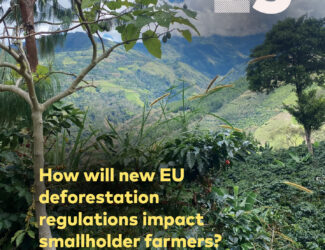
New Report by World Coffee Research on Seed Quality Assurance in Latin America
World Coffee Research (WCR) has recently released a comprehensive report focusing on seed quality assurance in the coffee sector, shedding light on opportunities to enhance the industry’s resilience.
The report delves into the status of seed lots across five key Latin American countries—El Salvador, Guatemala, Honduras, Nicaragua, and Peru—providing valuable insights for enhancing cleanup efforts, renovation strategies, and infrastructure development.
The absence of a formal coffee seed sector poses a significant, yet often overlooked, challenge for the global coffee industry. WCR’s technical report offers a detailed analysis of seed sources in the aforementioned countries, emphasizing the critical need for establishing robust infrastructure to ensure the availability and accessibility of genetically conforming and high-quality planting material for farmers.
Dr. Vern Long, CEO of WCR, emphasizes the importance of improved varieties in supporting successful coffee production and securing the industry’s supply chain. He highlights the strides made by partners in addressing quality assurance issues, which ultimately empower farmers to plant coffee trees with confidence, ensuring long-term performance and productivity.
The report underscores the diverse pathways through which farmers acquire planting material, ranging from informal exchanges to purchasing seedlings from local nurseries. However, the quality of these materials often falls short due to a lack of phytosanitary standards and genetic conformity, leading to diminished yields over the lifespan of coffee trees.
Informal propagation practices, such as seed selection based on perceived performance, contribute to genetic variability and unreliable plant characteristics. Moreover, discrepancies between expected and actual varieties further exacerbate productivity and profitability challenges for farmers.
A formalized seed sector would provide farmers with verified, high-quality planting material, thereby bolstering their economic viability. By facilitating access to higher-yielding and market-compliant coffee trees, such infrastructure holds the potential to uplift farming communities and enhance industry sustainability.
Opportunities and Challenges in Latin America:
Latin America’s reliance on smallholder coffee production underscores the need for tailored solutions to address regional nuances. While some countries boast specialized research programs, others struggle with regulatory frameworks and genetic contamination risks, necessitating concerted efforts to fortify the seed sector.
Under the USDA-funded MOCCA program, WCR conducted assessments across 52 seed plantations, evaluating genetic conformity and supporting cleanup efforts. The resulting report provides valuable insights into local seed lot practices, identifies promising seed sources, and informs strategies for enhancing nursery operations in the region.
- By : Qahwa World
- On :
Latest Posts
- EU Deforestation Regulation Puts Peruvian Coffee Farmers at Risk of Market Exclusion
- What Is the International Coffee Agreement 2022, and What Has Changed?
- Norway Officially Ratifies the International Coffee Agreement 2022, Reinforcing Global Coffee Cooperation
- U.S. Federal Court Fines Company $31 Million Over Coffee Shipment Failure
- European Branded Coffee Shops Reach Record Growth Despite Soaring Costs



